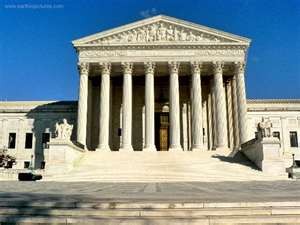 Three decades ago, in Ake v. Oklahoma, the Supreme Court held that indigent criminal defendants have a constitutional right of access to a psychiatric expert in some cases. More specifically, the Court stated, “[W]hen a defendant demonstrates to the trial judge that his sanity at the time of the offense is to be a significant factor at trial, the State must, at a minimum, assure the defendant access to a competent psychiatrist who will conduct an appropriate examination and assist in evaluation, preparation, and presentation of the defense.” 470 U.S. 68, 83 (1985).
Three decades ago, in Ake v. Oklahoma, the Supreme Court held that indigent criminal defendants have a constitutional right of access to a psychiatric expert in some cases. More specifically, the Court stated, “[W]hen a defendant demonstrates to the trial judge that his sanity at the time of the offense is to be a significant factor at trial, the State must, at a minimum, assure the defendant access to a competent psychiatrist who will conduct an appropriate examination and assist in evaluation, preparation, and presentation of the defense.” 470 U.S. 68, 83 (1985).
This seemingly straightforward holding has spawned a number of long-running disputes in the lower courts. Among the more important lingering questions is this: May a state satisfy its obligation under Ake by supplying the defendant with access to a neutral expert who is equally available to both sides, or must the state engage an expert who will truly serve as a member of the defense team? Of course, a wealthy defendant would almost always be well-advised to hire his own expert, rather than merely relying on a neutral, but Ake does not necessarily guarantee that poor defendants will have all of the advantages of their rich counterparts.
With the lower courts split on this question, the Supreme Court finally seemed poised to provide a definitive answer this term in McWilliams v. Dunn. However, when the Court issued its McWilliams decision earlier this week, the justices actually ruled in the defendant’s favor on quite narrow, case-specific grounds, leaving the big question about the acceptability of a neutral expert unanswered.
Whenever the Court gets around to answering the question — and, given the way that matters were resolved this week, McWilliams itself could well provide the vehicle on a return trip to the Court — the justices will confront a difficult issue that touches more generally on the role of experts in an adversarial system of justice, and even on the very nature of scientific knowledge.
Our ideal for science is objective knowledge. We hope that scientists will develop analytical methods that will invariably yield the same conclusion as to the same subject, regardless of who is doing the analysis.
If tests for mental illness are “scientific” in this sense, then there seems little unfairness in limiting the defendant to a neutral psychiatrist. The only way in which having an expert on the defense team might change the outcome would be if the defendant’s “hired gun” were dishonest or incompetent — and there surely cannot be a constitutional right to mislead the jury with bad science.
Thus, the claim that the defendant should have his own expert seems implicitly grounded in a belief — accurate, I should think — that psychiatric diagnosis does not always fit that ideal of wholly objective and indisputable conclusions. In the American legal tradition, of course, we look to adversarial process to determine the truth when there are two conflicting, but both still plausible, versions of reality available. Thus, if reasonable psychiatrists could differ over a defendant’s diagnosis, it seems natural to fall back on adversarial process and give each side an opportunity to make the best case possible for its version of reality, including with its own expert witness. We are accustomed to think that the truth will emerge from such an adversarial clash.
And, yet, there is something disquieting about this picture. When we ask a jury to choose between two competing stories about what a defendant did, we count on the jury to use its common sense and life experience to decide which version of reality is more plausible. But, when the question instead relates to what was going on in the defendant’s head, it is not so clear that common sense and life experience are up to the challenge. After all, the essence of the defendant’s claim is that his brain was not working in a way that is familiar to most lay people in their day-to-day lives. The very reason we bring experts to bear to try to deal with the issue makes lay jurors seem unqualified to pick between the two different versions of reality being presented.
There does seem a dilemma here. If we use only a single, nominally neutral expert, then the jury may be left with a sense in some cases that the science is more certain and one-sided than it really is. On the other hand, if we arm each side with its own expert, then we implicitly ask the jury to perform a task for which it is ill-equipped — adjudicating the scientific quality of competing expert opinions. There may be ways of alleviating the concerns — e.g., through use of a neutral panel of experts — but such approaches tend to raise cost and other practical difficulties.
Perhaps the conundrum helps to explain why the Court has not seemed anxious to resolve the big question that was posed by McWilliams.
